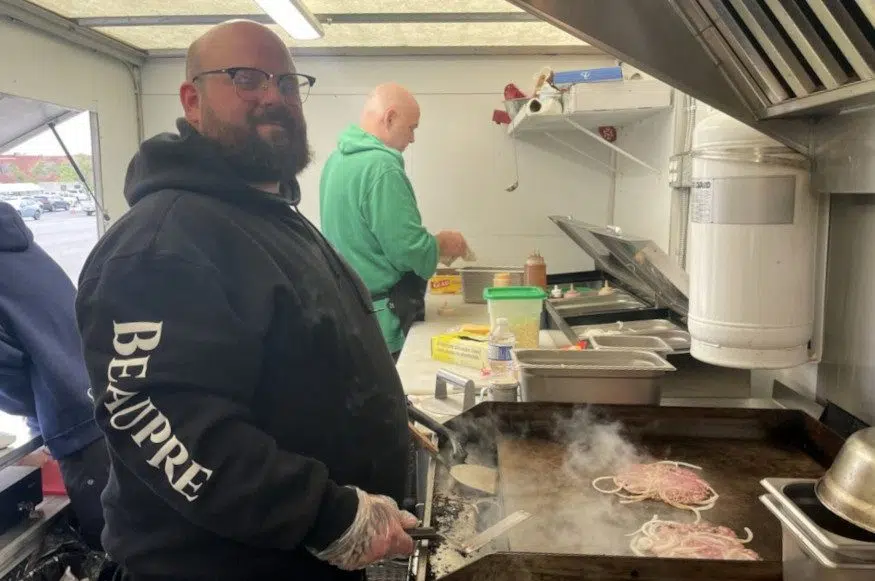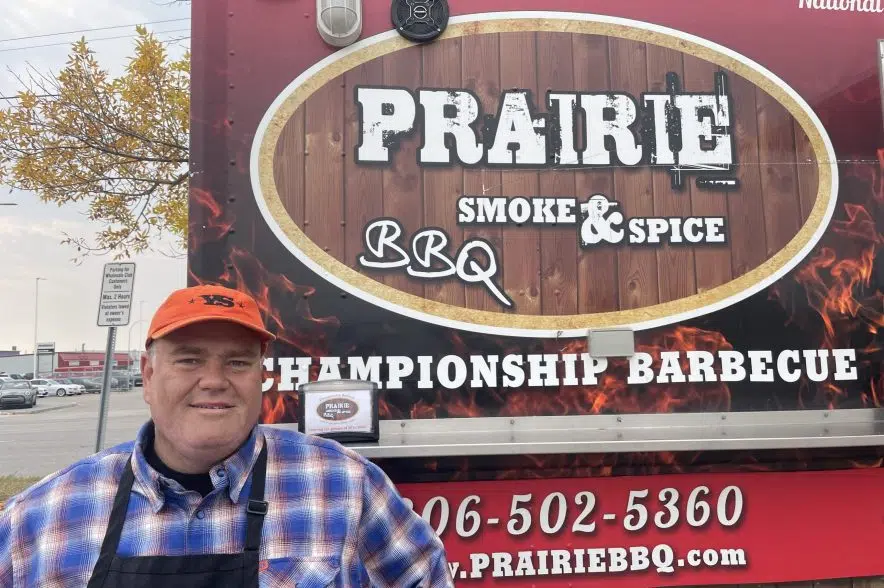From the moment they pull up to the second the grill turns on, food truck owners are feeling the heat from inflation.
Canada’s inflation rate rose to four per cent in August, which was up from 3.3 per cent in July.
Rob Reinhardt has been running the Prairie Smoke & Spice BBQ food truck since 2012, and said grocery and travel costs are taking the biggest bite out of his budget.
“I’m not excited about all the prices going up, but we have been able to increase our prices that we have sold to customers somewhat. Everyone understands that inflation is an issue,” said Reinhardt. “We’re just as popular as we’ve ever been.”
In 2021, Reinhardt noticed meat prices started to climb, but now inflation has caused almost all other grocery prices to go up.
“Everything else goes into our menu — the cabbage, the onions, the beans (and) things like that,” said Reinhardt. “A lot of those products have doubled in the past 12 months.”
The meat for the beef brisket on the menu has gone from $8 per kilogram to $13 per kilogram since 2020.
Reinhardt said that travel expenses, particularly when the food truck crew needs to spend the night in a hotel, has gone up.
“(There’s) the cost of fuel to get around. We travel quite a bit with our business, and hotels have gotten much more expensive,” he said.
“In 2020, hotels were pretty cheap. There wasn’t a lot of travel, but even with the last year, your basic hotel rooms around Western Canada have gone up from $150 to $200 to $250 a night.”
Kyle Forrest owns The Paddy Wagon, a food truck that just made its way onto the Regina scene in June. Grocery prices are often a mystery until he gets to the checkout.
“It changes weekly; we never know what we are going to be paying,” said Forrest. “Every time that we go into the grocery store, it seems like a surprise.”

Kyle Forrest flips hamburger patties in his food truck, The Paddy Wagon, in Regina on Sept. 19, 2023. Like many business owners, Forrest is feeling the pinch from inflation. (Gillian Massie/980 CJME)
Since he first started flipping patties inside The Paddy Wagon in June, Forrest said it was “surprising” to see beef prices go up by at least 10 per cent.
“We were paying around $45 for 10 pounds of ground beef,” he said. “Now that has gone up from anywhere from $52 to $58.”
Costs coming in each month have been steady for Forrest so far, but when inflation rises, he said it’s always a concern. Fuel is one of his biggest costs.
“Inflation has been such a big thing in the past few years. If you don’t factor that into your business plan, then you’re not doing something correct,” said Forrest.
Reinhardt said the reaction from people has been pretty positive to seeing prices go up by a few dollars.
“People understand that the prices are higher for everything,” said Reinhardt. “I don’t get much complaints about paying an extra dollar for a sandwich compared to last year. People were understanding. It’s good.”











